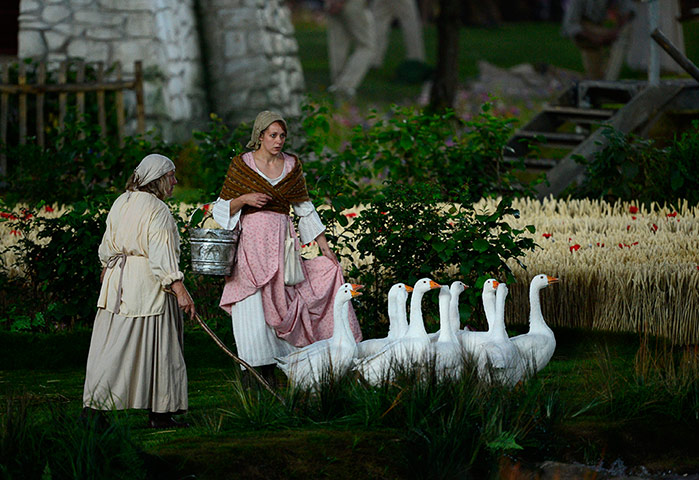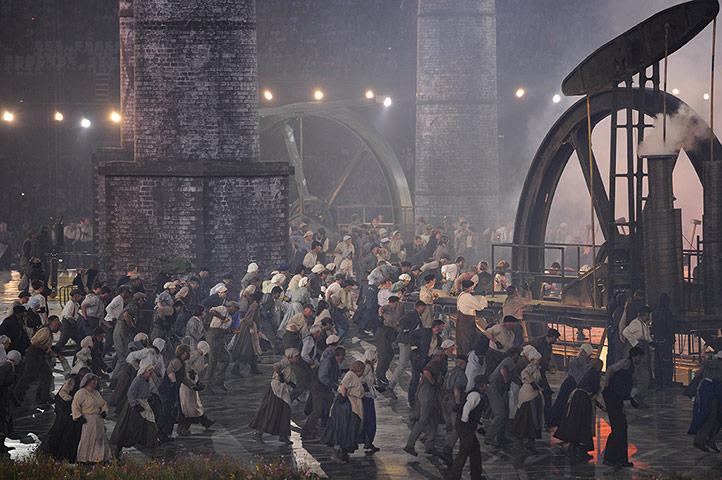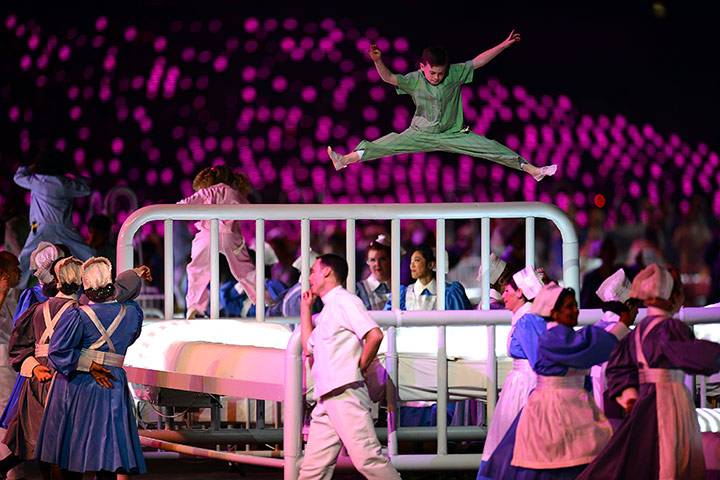Through the traditional medium of the pageant, 10,000 volunteers directed by filmmaker Danny Boyle performed a live action mashup or montage to portray who we are and how we got here. The pageant moved from medieval village life, through the industrial revolution, to a celebration of the NHS, children, comedy and popular culture.
Montage
Throwing different images together creates new meanings from their collision – this is the principle of montage, a film editing technique developed by early filmmakers like Sergei Eisenstein in silent movie classics like Potemkin, October and Strike. It also underpins the work of the Surrealists, who famously defined beauty as the chance meeting of an umbrella and a sewing machine on a dissection table. I guess it took a filmmaker to apply what’s basically a film editing technique to a gigantic live-action pageant.
So what new meanings did this Olympic juxtaposition of images spark? There will be as many answers to that as there are people who saw the pageant.
A new idea – a National Environmental Service
For me, the pageant provoked the idea that what we need now is a National Environmental Service.
Just as the NHS was a creative, collective response to long-standing social injustices in a previous time of economic and social chaos – following the 1930s depression and the death and destruction of World War 2, so we need a collective, creative response to our current chaos – which this time includes environmental as well as social injustice. The NHS – which the Olympic pageant showed as a defining, much-loved feature of British life and society – provides us with a model of how to pull ourselves out of the mess we’re in, by creating social institutions based on truly collective principles.
Surveys show that most people in the UK
- recognise that human-influenced climate change is happening and is damaging the environment and people’s lives
- would support equitable laws and regulations to reduce climate change and adapt to it
Current climate change policies are based on the idea that human-influenced climate change is a problem caused by market failure. They therefore advocate financial and market-based measures to solve the problem. This view underpins the Stern Review, which has formed the basis for the Climate Change Act 2008. This Act basically shapes all national and local government policies and programmes to deal with climate change.
As a response to a massive, collective problem, treating climate change as if it’s a market failure is as if Aneurin Bevan’s health service reforms had said that tinkering with the private health care system would solve the problem that millions of people couldn’t afford health care.
Collective, creative political reforms
Climate change is a political problem, not the result of market failure. It’s the result of historical decisions about the kind of economy and society we’ve developed – one that, as the Olympic pageant showed, has been based on industrial-scale use of fossil fuels.
It’s also what planners call a wicked problem – a problem that’s so pervasive and complicated that no single “silver bullet” solution is available. There are only a variety of clumsy solutions to wicked problems. In other words, solutions that work more or less well for different bits of the problem.
Climate change is also a social justice problem. The richest individuals and the biggest and most powerful companies cause the greatest amount of climate-changing greenhouse gas emissions. The poorest produce the lowest amount of emissions, but suffer most of the consequences of environmental degradation and climate change.
For all these reasons, climate change is a collective, political problem. That means we need a collective, creative, political solution. Inspired by the value and durability of the NHS, let’s imagine how to extend the Olympic pageant into the future, taking with us the skills, knowhow, creativity, sense of fun and commitment to collective, socially just reforms that’ve brought us here so far, and extending them to repair and make good the unforeseen problem of human-influenced climate change that our very successes have generated.
Now, you may think this is nuts. But read what the pageant’s writer, Frank Cottrell Boyce, has to say.






